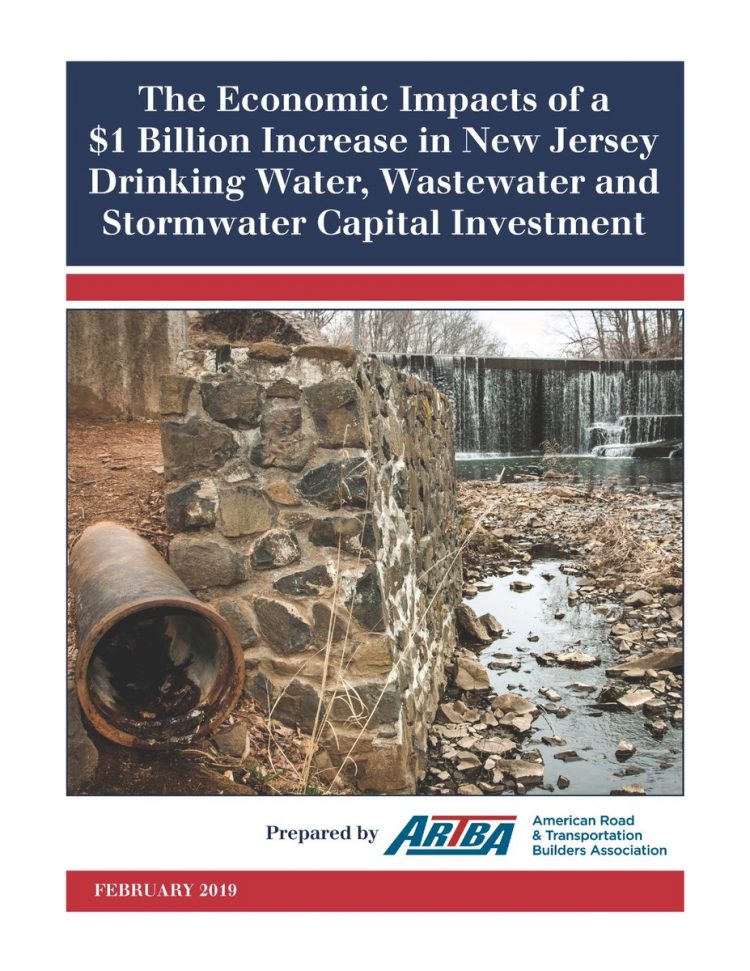Boosting New Jersey Water Infrastructure Capital Investments Would Provide 3:1 Economic Return, New Analysis Finds

Report available at www.artba.org
(WASHINGTON) – An additional $1 billion annual investment dedicated to improving New Jersey’s drinking water, wastewater and stormwater systems would generate $3 billion in economic benefits and support nearly 14,000 jobs, according to a new analysis conducted by the American Road & Transportation Builders Association (ARTBA).
Current spending on the networks that supply clean drinking water, treat wastewater, and drain stormwater is estimated to average about $1 billion per year, according to the Utility and Transportation Contractors Association of New Jersey (UTCA), while there is about $2 billion in needed investment annually. “New Jersey is looking at a $1 billion shortfall every year,” said Bob Briant, Jr., CEO of UTCA. “This report shows unequivocally that increasing investment in our water systems is a tremendous boon for our fiscal health as well as our public health. With an ROI that benefits our communities as well as our coffers, it is clear that the time for talk is over. Now we must get to work.”
“A major commitment to improving New Jersey’s water infrastructure systems is a ‘win-win’ proposition,” says Dr. Alison Premo Black, the study’s author. “The increased investment will not only help prevent future service disruptions and potential public health hazards, but also have enormous positive impacts on the state’s economic productivity and job creation.”
Among the other key findings in the report:
- Sales and output by businesses in all sectors will increase by $2.1 billion for every $1 billion invested;
- 13,787 jobs would be supported or created throughout the state economy every year;
- Those workers will earn a cumulative $739.5 million per annum and will generate $143 million in additional state and local tax revenues, including $62.8 million in state and federal payroll taxes, $61.1 million in state income tax and corporate business tax revenues, and $19.3 million in state and local sales and use tax revenues;
- These investments will contribute $1.2 billion to the state’s GDP annually
Capital investments to repair, replace and upgrade aging drinking water, wastewater and stormwater systems generate and sustain jobs directly through needed repair projects, but also stimulate economic activity in other related sectors, as water projects depend on materials such as pipes, fittings, cement, and aggregates. Such investments will also help ensure safe water and reliable wastewater treatment; necessary criteria to attract and retain industry, businesses, and qualified workers.
To view the full report, visit the “Economics” section of www.artba.org.
Since 2000, Dr. Black and her team have authored nearly 100 studies examining state and national transportation funding and investment patterns. Dr. Black has a Ph.D. in economics from the George Washington University and a master’s in international economics and Latin American Studies from the Johns Hopkins School of Advanced International Studies.
Established in 1902 and with more than 8,000 public and private sector members, the Washington, D.C.-based ARTBA advocates for strong federal investment in transportation infrastructure to meet the public and business community demand for safe and efficient travel.


